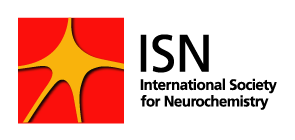Travelling to conferences, workshops, and /or schools across the world may come with many obstacles, such as obtaining a visa to attend the meeting. This process is not always successful, denying some the opportunity to fulfil their dreams. To avoid disappointment we have prepared some suggestions.
Prepare your application early: from experience, the visa application process goes more smoothly if applicants prepare for the visa application early. Find out what information and items are required for your visa category and prepare them.
Ask questions: Ask questions of previous successful applicants to help prepare your mind for the application process. Though everyone will go through the process with a different experience, support from previous applicants will go a long way to help/ease the process.
Apply early: it’s a known fact that early detection can improve treatment outcomes; this also applies to your visa application process. If you apply early, it will save you missing out if the embassy/consular delay processing your application for any reason. Because the embassy will not break their rules for you; you are advised to apply as early as possible. I have seen a co-applicant waiting for their visa for two months plus. It is recommended to apply for visas at least three months before the meeting.
Choose the right category of the visa: choosing the right category of visa to apply for is very primary to the success of the visa application. Some countries pool conference and tourism visa application while the visa for a research visit to the US is currently under J1 (for research/visiting scholars) visa category. You need to check the embassy website for the category that will fit your application process because it will affect the visa application fee and may also affect the processing time as well as the final decision.
Carefully fill out your application form: the correctness of the information you supply is very important in the success of your application. If you make a mistake contact the application center for corrections. Remember that they will only judge you based on the information you provided during the application/interview, and they will compare it with the pool of your data from the background check; therefore, any serious contradictions will be regarded as falseand it may impact the outcome of your application.
Seek for help on time: you need to seek assistance in case your visa application is not successful or unnecessarily delay. Contact your host and other applicants, if any. This will help to ease the tension, and they can even help you to contact the application center to facilitate the process; But don’t forget the host(s) cannot influence the outcome of the visa application, but they may help you to explain things better to the consular office in the local language.
Contact other applicants in your area: as you plan for your application, it’s advisable for you to contact some of the other applicants in your locality this will ease tension in your application process and provide you with some necessary feedback on the process. This will help you to go as a group (if you are close and the application center is the same). You can learn from their experiences and improve your application.
What do the embassy/consular want to know about you?
To ease your application process you need to know what the consular wants from you. They may want to know the following;
- Are you who you claim to be?
- Are you going to the meeting you claim to be going or do you have a hidden agenda?
- Do you have enough financial support for the trip? It is advisable to request a letter from your mentor stating that your trip will be sponsored in addition to your bank statement.
- Will you leave the country as soon as you are done with the meeting? If your answer is No, you will have to justify why you want to extend your stay. A letter stating that you are currently pursuing your studies or that you have a contract job at your university is helpful
- How many countries have you visited in the past few years? Provide a scan of all passport (old and new) pages.
- Do you have reason(s) to return to your home country?
The questions they will ask you during the application and/or interview period is to help them answer the above questions. How best you answer these questions will impact your application processing speed and outcome.
Best of luck, your YSSC-folks
Philip A. Adeniyi, PhD.
Mohammed R. Shaker, Ph.D.
